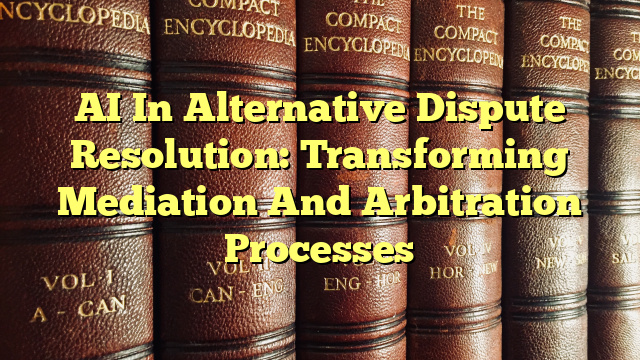Table of Contents
Mediation
Mediation is a process in which parties to an unresolved dispute are brought together in an effort to reach a mutually agreeable resolution. This process is facilitated by an impartial mediator, who has no interest in the outcome of the dispute and is not empowered to make decisions on behalf of the parties. The mediator’s job is to facilitate communication between the parties and help them reach a mutually acceptable agreement. Mediation is a voluntary process and the parties can choose to accept or reject any agreement they reach.
Arbitration
Arbitration is a process in which an impartial third-party decides the outcome of a dispute. Unlike mediation, arbitration is binding and is usually used as a last resort when other methods of dispute resolution have failed. The arbitrator is empowered to make decisions on behalf of the parties and is tasked with ensuring a fair and reasonable outcome is reached. Arbitration is often used in cases involving complex legal matters, commercial disputes, and labor disputes.
AI in Dispute Resolution
AI has the potential to transform the dispute resolution process by providing more efficient and cost-effective methods of resolving disputes. AI can be used to automate manual processes, such as document review, analysis, and decision-making. AI can be used to analyze large amounts of data quickly and accurately. AI can also be used to provide predictive analytics, which can help parties to accurately assess their chances of success in a dispute.
AI can also be used to assist with the selection of arbitrators, mediators, and other dispute resolution professionals. AI can be used to assess candidate qualifications, review dispute resolution guidelines, and recommend the most suitable dispute resolution professional for a particular case.
AI can also be used to support dispute resolution processes by providing real-time data and analytics. AI can track the progress of a dispute, provide real-time updates, and alert parties to any changes in the dispute. This can help parties make more informed decisions and reduce the time and cost associated with dispute resolution.
Methods of ADR
Alternative dispute resolution (ADR) is a broad term which includes a range of methods for resolving disputes. The most common methods of ADR are mediation and arbitration. Other methods of ADR include negotiation, conciliation, and collaborative law.
Mediation is a voluntary process in which parties attempt to reach a mutually acceptable agreement with the assistance of an impartial mediator. Arbitration is a process in which an impartial third-party decides the outcome of a dispute. Negotiation is a process in which parties attempt to reach a mutually acceptable agreement without the assistance of a third-party. Conciliation is similar to mediation, but the conciliator is empowered to make decisions on behalf of the parties. Collaborative law is a process in which parties attempt to resolve their dispute without resorting to litigation.
Appointing Arbitrators
AI can be used to appoint arbitrators in a number of ways. AI can be used to assess candidate qualifications, review dispute resolution guidelines, and recommend the most suitable dispute resolution professional for a particular case. AI can also be used to automate the process of selecting and appointing arbitrators, saving time and reducing the cost associated with the process.
AI can also be used to support the selection process by providing real-time data and analytics. AI can track the progress of a dispute, provide real-time updates, and alert parties to any changes in the dispute. This can help parties make more informed decisions about the selection process.
The use of AI in dispute resolution has the potential to transform the way we resolve disputes. AI can be used to automate manual processes, provide predictive analytics, support


AI has the potential to redefine mediation and arbitration processes. It can transform these traditional methods of ADR by providing automated dispute resolution tools and insights to help resolve disputes faster and more accurately.
AI could also help identify the best-suited mediator to a case, streamlining the process.